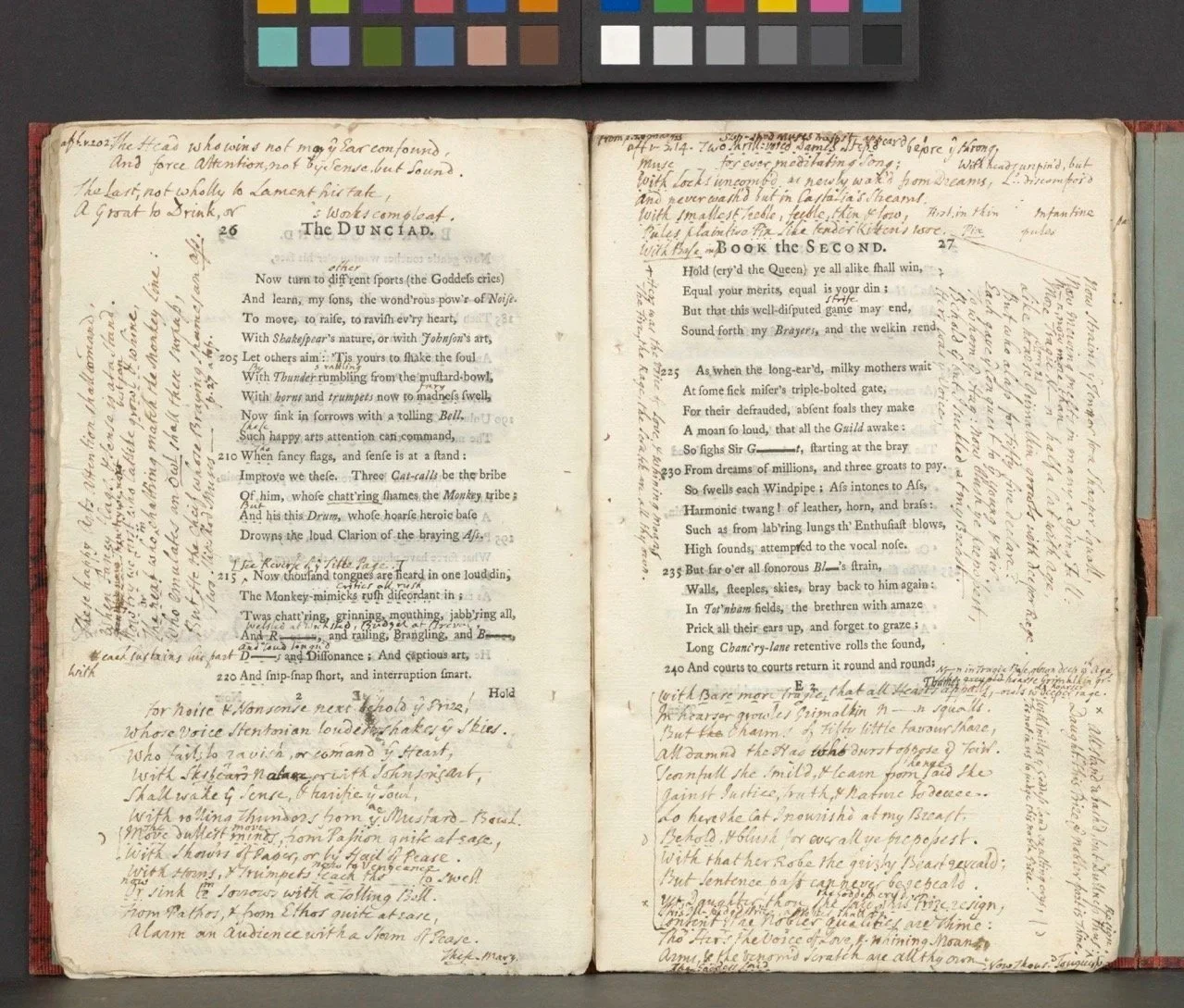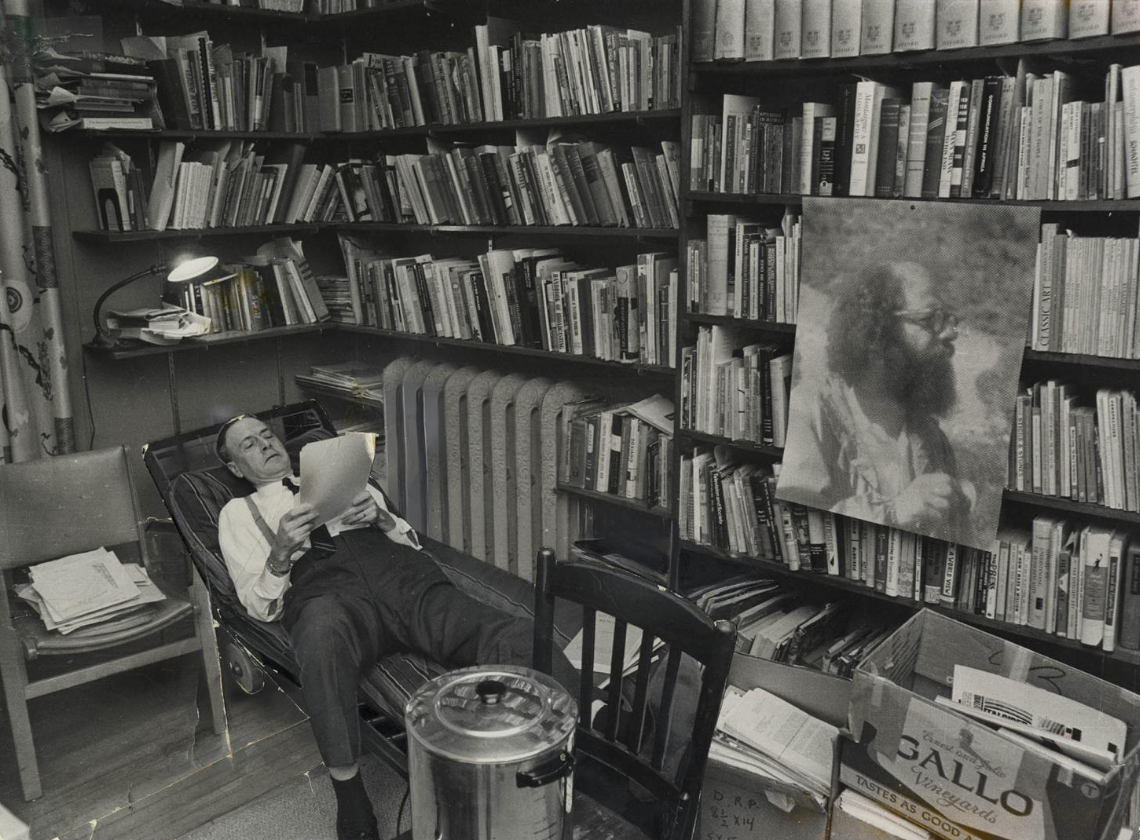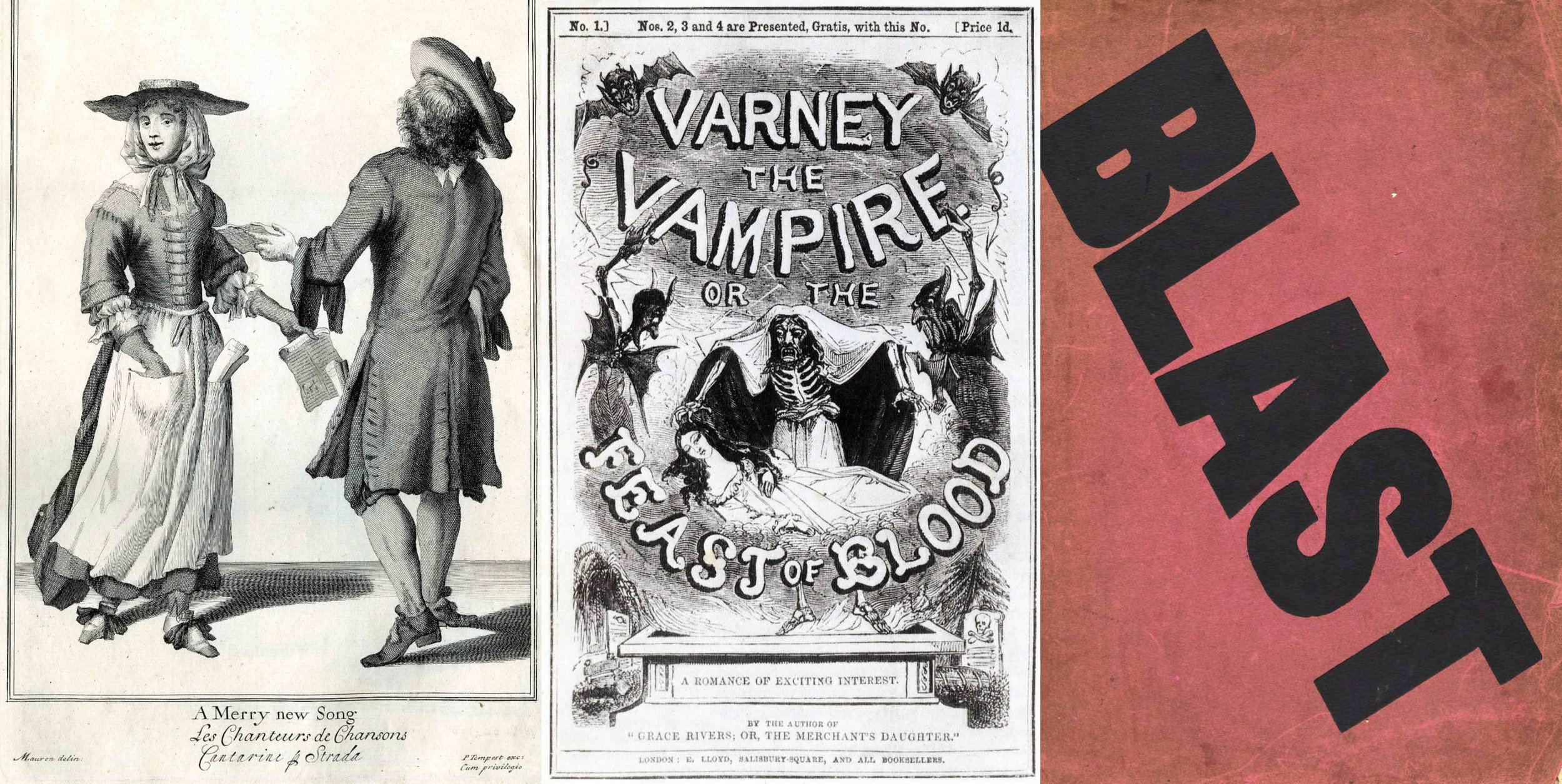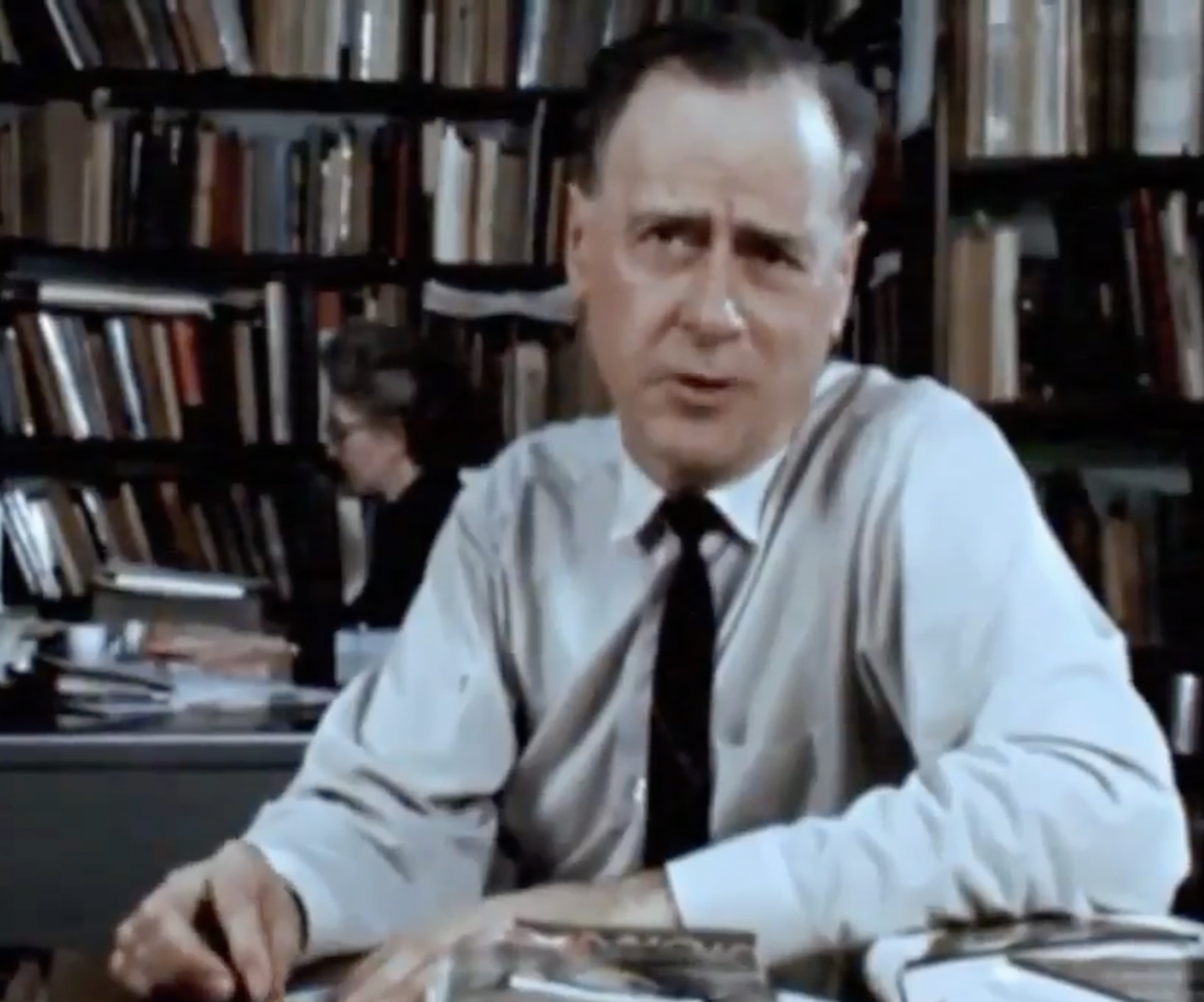
Current Projects
Marshall McLuhan: A Literary Biography (book project)
Based on extensive archival research in Canada, the United States, and Great Britain, this will be the first biography of this globally recognized media theorist, philosopher, and public humanist written in the last thirty years, and the only biography of him written by a scholar without any personal connection to McLuhan (1911-1980). Overturning many common assumptions about this literature professor-turned-media-theorist, and reframing his life and career in relation to English literary history and the modern development of “English Studies,” this study of a bibliomaniacal book collector who used literature (from medieval to modern) as a laboratory for thinking about the new “electronic age” will be of interest to general readers and to scholars of literature, history, media studies and the public humanities.
Street Literature from Ballads to BLAST (book chapter)
I was invited to contribute this chapter to the Cambridge History of the Literature of London, Vol. 2: 1660-1914, ed. Nicholas Daly and Thomas Keymer (Cambridge UP, 2027).
McLuhan’s Women (book project)
“God bless the telephone and Margaret Stewart.” So wrote Marshall McLuhan in a letter to a friend. Or rather, so spoke McLuhan, for he did not “write” this letter. Rather, he dictated it to his secretary, who typed not only his correspondence but also his books, essays, lectures, and class notes. To Stewart’s dismay, McLuhan often trusted her to revise, sign, and send out “his” letters without his having picked up a pen. Stewart’s role in shaping McLuhan’s works was not unique. Around him worked a whole constellation of women whose importance has long been overlooked.
McLuhan’s Women is the first focused study of this hidden network. Secretaries, editors, publishers, anthropologists, urban planners, students, nuns, feminists and family members all shaped the ideas that made McLuhan famous. Concepts and theses such as “the global village,” “print culture,” and “the medium is the message” are known worldwide, yet McLuhan’s annotated library of six thousand annotated volumes and fifty meters of manuscripts at archives show how deeply these ideas grew out of conversation and collaboration.
The book reveals the influence of women thinkers such as anthropologists Margaret Mead, Ruth Benedict, and Dorothy Lee; literary historians Q. D. Leavis, M.C. Bradbrook, and Marjorie Hope Nicholson; urban planners Jane Jacobs and Jacqueline Tyrwhitt; and economist and environmentalist Barbara Ward. It highlights the role of publishers such as Ruth Nanda Anshen in framing and promoting McLuhan’s works, and it explores exchanges with former students who became trusted interlocutors, such as Sheila Watson and Kamala Bhatia. At home, too, women shaped and challenged McLuhan’s thought: his mother Elsie, a professional elocutionist, honed his ear for speech and performance, his wife Corinne was a partner in his intellectual life, and his four accomplished daughters published and produced progressive works of their own.
Drawing on rich archival research, McLuhan’s Women reframes the story of one of the twentieth century’s most influential media thinkers. McLuhan appears here not as a solitary genius but as the hub of a collaborative web—an “extended mind” powered by women’s scholarship, labor, and critique. The result is a fresh, surprising portrait of how ideas we think we know were forged in dialogue with voices too long left out of the story.
Writing for Exhibition (course design)
How do you catch someone’s attention in six seconds?



